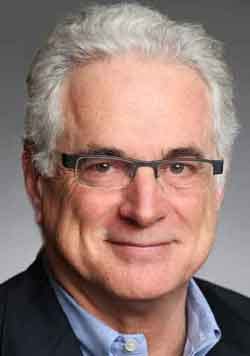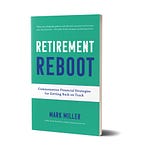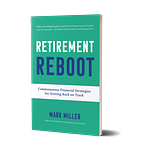
Economists call it the “old-age dependency ratio” - a rough measure of the balance between people who work and retirees.
The ratio compares the number of people over age 65 - classified as “old” - with those aged 15 to 64 - and it is not headed in a healthy direction: by 2040, there will be 2.7 working-age Americans for each retiree, down from 4.8 in 2010.
That number from the Federal Reserve Bank of Atlanta points toward a shortfall of workers available to support an aging population, and it is cited often to justify doom-and-gloom warnings about economic growth, federal spending and the health of our social insurance programs.
But don’t tell that to Chris Farrell. The senior economics contributor to "Marketplace," American Public Media’s nationally syndicated public radio business and economic program, is bullish on aging. Farrell is the author of a new book, Purpose and a Paycheck: Finding Meaning, Money, and Happiness in the Second Half of Life, that seeks to upend a range of myths about old age and dependency, replacing them with a new vision of contribution to society and purpose-driven living.
In this week’s podcast, I talk with Chris about some of the key ideas in his book:
Why the "dependency ratio" is nonsense;
Who is working longer - and why;
Which industries and companies are accommodating older workers;
The influence of women on the composition of an older workforce;
Government polices that could make it easier for people to work longer.
Subscribe!
This podcast is excerpted from a series delivered each week to subscribers of the RetirementRevised newsletter. The newsletter delivers a concise summary of the week’s news on the retirement and aging beat, along with my most recent articles for Reuters, WealthManagement.com, Morningstar.com and The New York Times. Each edition includes a premium, full-length podcast featuring top experts on retirement planning and investing, Social Security and Medicare and the challenges of working longer.
Recent episodes have featured:
Nancy Altman, a leader in the progressive movement to strengthen and expand Social Security - and a scholar on Social Security’s history who has written several important books on the program;
Jill Schlesinger, the personal finance guru at CBS News and author of The Dumb Things Smart People Do with Their Money;
Mitch Tuchman, a pioneer in robo-advisory services and founder of Rebalance;
Elizabeth White, author of 55, Underemployed, and Faking Normal, a remarkable personal narrative about the traumatic experience of job loss at midlife.
Richard Johnson, director of the program on retirement policy at The Urban Institute, for a discussion of the pros and cons of a higher Social Security retirement age.
Dan Prescher, co-author of The International Living Guide to Retiring Overseas on a Budget: How to Live Well on $25,000 a Year.
I hope you’ll agree that the newsletter and podcast are a great way to stay on top of trends in retirement and aging.
Click here to view a sample edition of the newsletter, featuring my podcast interview with Jill Schlesinger. Or, just click the little green button below. You know what to do.












